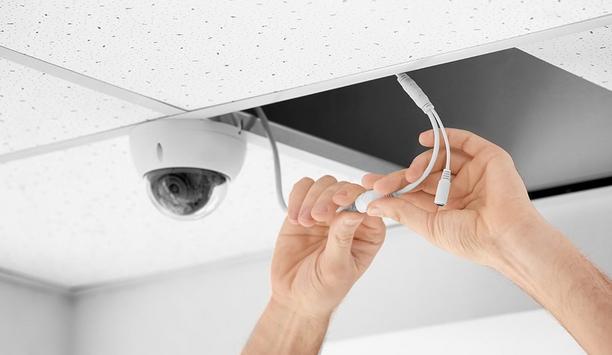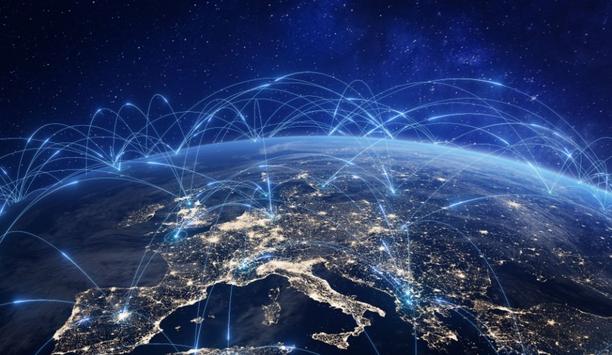IP Surveillance - Round table discussions
Cost is a reality to be managed. No matter how powerful or desirable a technology may be to a customer, the sale often comes down to the basic question: Can I afford it? And affordability extends not just to the purchase price, but to the cost of technology over its lifespan. In addition to advances in technology capabilities, the security industry has also achieved inroads to make its offerings more worth the cost. We asked this week’s Expert Panel Roundtable: What is the physical securi...
Adoption of General Data Protection Regulation (GDPR) by the European Union in 2016 set a new standard for data privacy. But adherence to GDPR is only one element, among many privacy concerns sweeping the global security community and leaving almost no product category untouched, from access control to video to biometrics. Because privacy concerns are more prevalent than ever, we asked this week’s Expert Panel Roundtable: What is the impact on the physical security market?
Many of us take critical infrastructure for granted in our everyday lives. We turn on a tap, flip a switch, push a button, and water, light, and heat are all readily available. But it is important to remember that computerised systems manage critical infrastructure facilities, making them vulnerable to cyber-attacks. The recent ransomware attack on the Colonial Pipeline is an example of the new types of threats. In addition, any number of physical attacks is also possibilities. We asked this we...
Perimeter security is the first line of defence against intruders entering a business or premises. Traditionally associated with low-tech options such as fencing, the field of perimeter security has expanded in recent years and now encompasses a range of high-tech options. We asked this week’s Expert Panel Roundtable: What are the latest trends in perimeter security technology?
In the past few weeks, the light at the end of the COVID-19 tunnel has brightened, providing new levels of hope that the worst of the pandemic is behind us. Dare we now consider what life will be like after the pandemic is over? Considering the possible impact on our industry, we asked this week’s Expert Panel Roundtable: Which security technologies will be most useful in a post-pandemic world?
The topic of video analytics has been talked and written about for decades, and yet is still one of the cutting-edge themes in the physical security industry. Some say yesterday’s analytics systems tended to overpromise and underdeliver, and there are still some skeptics. However, newer technologies such as artificial intelligence (AI) are reinvigorating the sector and enabling it to finally live up to its promise. We asked this week’s Expert Panel Roundtable: What new technologies a...
Contact tracing has been more than a buzzword during the coronavirus pandemic. In some cases, it has been an issue of life and death. Tracking who an infected person has been in contact with is an important tool to minimise disease spread, and technology from the physical security industry claimed a role in contact tracing early on – and continues to provide benefits as companies seek to reopen. We asked this week’s Expert Panel Roundtable: How can the security industry enhance conta...
When technology performs a required task effectively, there is little reason to upgrade to the ‘next big thing’. In this regard, the physical security market is notoriously slow to change. Much of yesterday’s most robust and dependable equipment is still in place at thousands of customer sites, still performing as well as the day it was installed. However, there comes a point when any technology becomes outdated. We asked this week’s Expert Panel Roundtable: Which securi...
The “Roaring Twenties” was a decade of economic growth and widespread prosperity, driven by recovery from devastation, a construction boom, and welcoming of new technologies such as automobiles and electricity. As we look ahead to the big picture of the 2020s, 100 years later, are there parallels that suggest a successful decade ahead? Might recovery from the devastation of COVID-19 help to drive even higher levels of economic growth and technical innovation? We asked this week&rsquo...
As a subset of the larger economy, the security industry is bound to feel the effects of an economic downturn. Such was the case in 2020 when the COVID-19 pandemic undermined economic growth and presented a brand new set of challenges to business. The security industry has been able to pivot toward emerging opportunities, but that success has been offset by broader economic challenges. We asked this week’s Expert Panel Roundtable: What impact, positive or negative, has the larger economy h...
Internet-based training has long provided a less-expensive alternative to in-person classroom time. There are even universities that provide most or all of their instruction online. However, the COVID-19 pandemic has expanded acceptance even more and increased usage of internet-based meeting and learning tools. We asked this week’s Expert Panel Roundtable: How can remote or internet-based training benefit the physical security market?
Retrofit projects provide new levels of physical security modernisation to existing facilities. However, retrofits come with their own set of challenges that can frustrate system designers and defy the efforts of equipment manufacturers. We asked this week’s Expert Panel Roundtable: What are the biggest challenges of retrofit projects, and how can they be overcome?
Video management systems (VMS) have been around almost since the advent of IP cameras. During those years, VMSs have evolved from software that provides basic functionality to more user-friendly systems offering a growing list of capabilities, many of them related to analysing data as well as recording and displaying video. But the evolution is far from over. We asked this week’s Expert Panel Roundtable: What’s new with video management systems (VMS), and what are the new opportuniti...
An aging employee population and the influx of a new generation of workers and customers is driving change in the physical security industry. Millennials – those born in the 1980s and mid-1990s – are especially impacting how the industry operates, the technologies it produces, and the customers it serves. This tech-savvy generation grew up with the Internet at their fingertips. They embrace innovation in all its glory and expect it to play a seamless role in their lives – and w...
The new school year is a good time to reflect on the role of security in protecting our schools. From video to access control to some newer technologies, our Expert Panel Roundtable found plenty to talk about when we asked this week’s question: How does security technology make our schools safer?
In many regards, 2018 was a turbulent year for the physical security marketplace, driven by evolving technologies and changing customer needs, among other factors. Year-end is a great time to reflect, so we asked our Expert Panel Roundtable: What caused the most disruption in the physical security marketplace in 2018?
Knowledge shared among peers is often afforded more credibility than information from manufacturers. An approximation of that principle is at work in the use of case studies as marketing tools in the physical security industry. Case studies are aimed at telling real-world success stories – from actual customers – about how various technologies are used to accomplish security goals and make the world a safer place. But how useful are they? We asked this week’s Expert Panel Round...
The residential/smart home market is undergoing revolutionary transformation, with a flood of new products and technologies helping to make our homes more connected, easier to manage and, yes, smarter. These massive steps forward provide challenges, and also opportunities, for the security industry, which has played a major role in protecting homes and residents for decades. We asked this week’s Expert Panel Roundtable: How are changes in the residential/smart home market impacting securit...
Cloud computing has been around since the turn of the millennium. Over the years, the concept of storing and accessing programs over the Internet (instead of using an on-premises computer system) has grown in almost every realm of business. Some might say the physical security industry has come late to the party, delayed in some instances by (misguided?) concerns about cybersecurity of cloud systems. The bandwidth needed to transfer video to the cloud has also been a challenge. We asked this wee...
Software drives video solutions in the IP environment, but often that software is a pre-installed component of a purpose-built network video recorder (NVR). In other cases, software solutions are sold separately and then installed (usually by the integrator) on a commercial off-the-shelf (COTS) server. But how can an integrator or end user decide which approach is best for them? We asked this week’s Expert Panel Roundtable: What are the advantages and disadvantages of using a pre-configure...
Environmentalism is a universal consideration in most business sectors in 2016. Whether seeking to provide greener products, or looking for new ways to minimise waste of manufacturing processes, most companies are involved to some degree with environmental concerns. Green has not traditionally been a big driver in the security industry, but there are indications the profile of environmentalism is increasing. We asked this week's Expert Panel: How green (environmentally friendly) is the security...
Video cameras are smarter than ever. Video analytics functionality is available inside most cameras now on the market. Smarter cameras enable a system with distributed intelligence and also help to manage bandwidth and storage – on-camera intelligence can determine what video is important enough to tie up network resources and to eventually be retained or viewed. But on-camera video analytics have their limitations, and additional video intelligence at the server can add a new range of fun...
With more physical security systems using Internet protocol and being connected to the enterprise IT network, it’s not surprising that the corporate IT department is more involved than ever in the buying decision – for better or worse. Does the IT department bring valuable resources to the table, or are they an impediment to the sales and integration process? It’s not a new issue, but an increasingly important one as the industry changes. We asked this week’s Expert Panel...
Software changes constantly. There’s always a new patch or fix, and our computers persistently remind us that an update is available. As a core component of today’s IP networked video systems, video management software (VMS) is also subject to the need to be constantly updated and refined. We asked our Expert Panel Roundtable to elaborate: Why is it important that networked video customers keep up to date with the latest version of video management software (VMS)?
We have all heard the sales pitch: Use of megapixel cameras lowers the camera count needed to provide adequate video coverage, thus making the overall system less expensive. Use of fewer cameras equates to less infrastructure, bandwidth and storage, according to the claims, and megapixel cameras provide enough detail that you don’t miss anything using fewer cameras. It’s a compelling pitch, but one that has sometimes been questioned in the market. To look beyond the marketing hype, w...
For many years, generally speaking, the use of video surveillance has been seen as an extension of an end user customer’s security system. However, recently, we have also heard about how video can help customers more generally, providing benefits that extend beyond security and encompass better operations and management. Easier economic justification is one important aspect of looking more broadly at the benefits of video surveillance to the enterprise as a whole. Better return on investme...
Going back to the days when we asked our children to program our VCRs, many of us are challenged by the intricacies of technology. However, a benefit of newer inventions such as smartphones and tablets is that they are easier to use and “intuitive” – whatever that means. Security and video surveillance systems are becoming more complex in lockstep with consumer electronics, so we asked this week’s panellists: How does technology innovation in security systems impact the s...
Megapixel and panoramic camera manufacturers have been predicting the demise of pan-tilt-zoom (PTZ cameras) for several years now. They contend that PTZs can be replaced by the higher resolutions of newer cameras, coupled with their ability to “zoom” in digitally on a specific area of an image and show sufficient detail. New panoramic cameras also capture everything in a wider field of view, while a PTZ camera runs a risk of missing important action because it is pointed in the wrong...
Cybersecurity vulnerabilities of IP physical security systems have long been the industry’s “elephant in the room.” Perhaps as a function of salesmanship, the possibility of a cybersecurity attack on a physical security system has sometimes been downplayed or dismissed. However, video from hacked cameras streaming on the Internet cannot be ignored, nor can the possibility that an enterprise’s system could be hacked using back-door entry through an unprotected physical sec...
This week’s Expert Panel revisits a classic question that has been around since the advent of IP video: Should an enterprise’s video system have its own network, or should it share the corporate network? Our panellists' responses reflect new IT trends, technology changes and shifting priorities that are impacting how the question is approached. Rising concerns about cyber-security (such as fears that video might provide a hacker entry into the enterprise system) are one new aspect. N...
Palm vein recognition
DownloadThe key to unlocking K12 school safety grants
DownloadSelecting the right network video recorder (NVR) for any vertical market
DownloadPhysical access control
DownloadCybersecurity for enterprise: The essential guide to protecting your business
Download


































